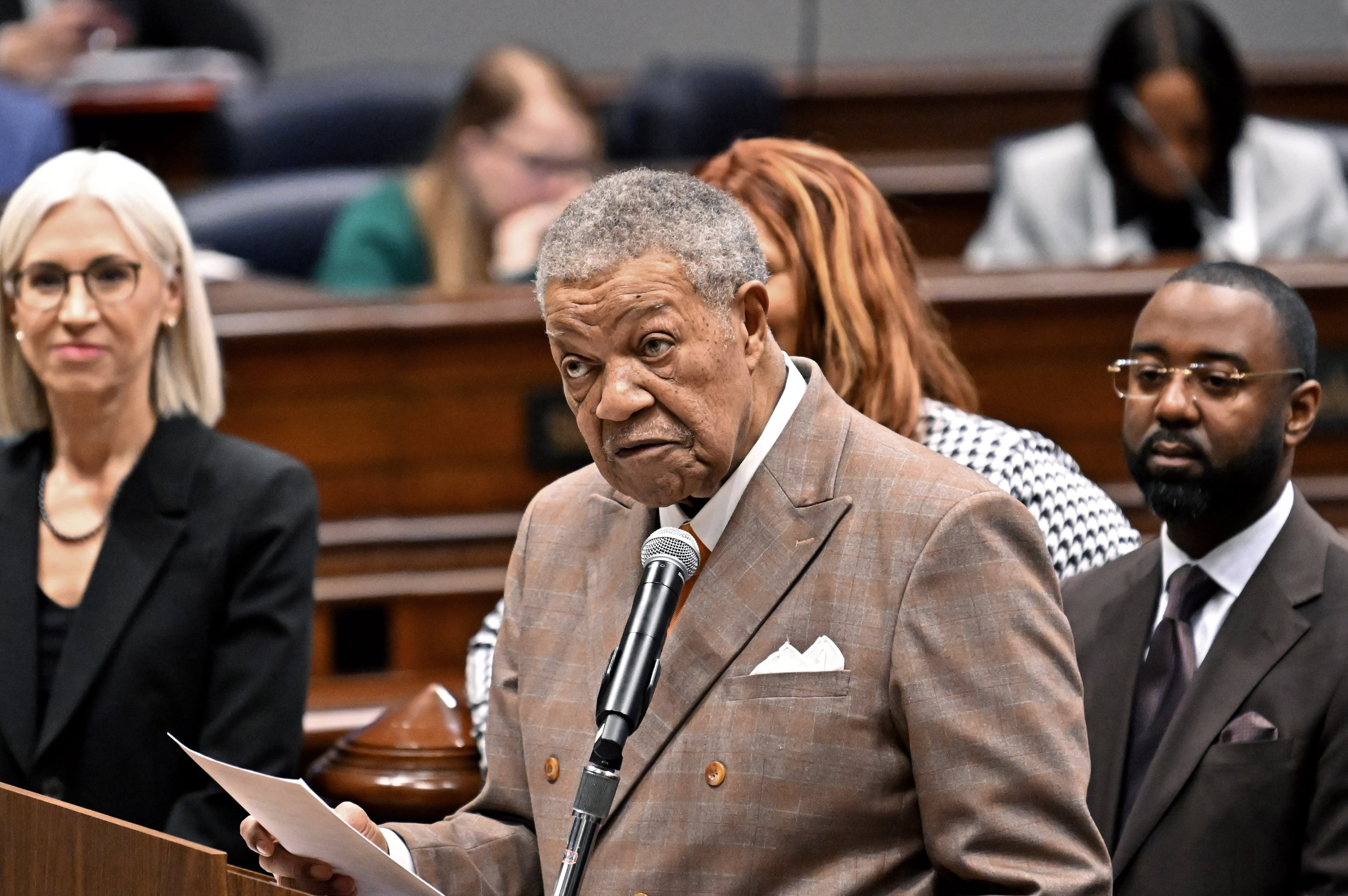Kemp’s Medicaid plan could pave way for limited expansion in Georgia

After months of planning and fraught political debate, Gov. Brian Kemp is set to detail a proposal that may pave the way for a limited Medicaid expansion that could add thousands of residents to the state’s rolls.
The governor has long ruled out a full expansion of the state's Medicaid program under the Affordable Care Act, something he campaigned against during the 2018 race. But he has said he's open to a more scaled-back effort to grow the program in a way "that's focused on Georgia." He has not made the plans public yet, but he has frequently alluded to health care plans that could help "hardworking Georgians."
The Republican is set to outline the policy Monday at the Georgia Capitol. Several health care advocacy groups calling for a full expansion of Medicaid have announced plans to hold their own press conference. And the Department of Community Health has set a specially called board meeting after Kemp's event to vote on his "Georgia Pathways" proposal.
His Medicaid policy is meant to harmonize with a separate set of proposals he introduced Thursday that seek to lower insurance premiums and undercut the Affordable Care Act, the federal health care law championed by then-President Barack Obama that Kemp and other Republicans see as too costly and inefficient.
Those plans seek to lower insurance premiums by setting aside more than $300 million in public money that the government could pay insurance firms to cover high-cost claims, and shifting $2.7 billion in federal subsidies from federal to state control to reduce costs to lower-income policyholders.
All the waiver proposals would have to withstand scrutiny from the federal government before they are implemented — no certainty despite Kemp’s ties to President Donald Trump. Kemp’s advisers have said they’re in frequent contact with White House officials and are confident the plans will win approval.
And any money required to run the waiver programs would have to come through the state’s Legislature.
A delicate balance
Kemp is pushing the health care changes despite pushback from Democrats, who staunchly opposed legislation that passed this year restoring the governor’s power to pursue the waivers.
The party's top officials said they support nothing short of full-scale Medicaid expansion, which analysts say would add more than 500,000 Georgians to the state's rolls. House Minority Leader Bob Trammell said it's the "most cost-effective way" to help struggling Georgians access health care.
“The waiver represents a deliberate decision not to cover many Georgians who would be covered by Medicaid expansion,” Trammell said.
“Bottom line, the waiver costs more per person, covers fewer people and takes longer to get started than a straightforward expansion of Medicaid,” he said.
The cost of the plan, too, will play a major factor in next year's legislative session. State Rep. Terry England, the chairman of the House's budget-writing committee, said he's not yet been fully briefed on either proposal but that he doesn't oppose devoting more state dollars to pay for health coverage for more adults through Medicaid.
But he said that budget request, along with Kemp’s separate plan to spend at least $104 million to lower insurance premiums, would have to compete with other priorities. They include a promised teacher pay increase of $2,000 and tax-cutting proposals.
“I mean, there’s so many things going on,” England said, nodding to hopes that the economy could soon heat up. “So if it were to do that, then you know it gives us a lot of options. If it doesn’t, of course, the number of options we have are extremely limited.”
Medicaid details to come
The law explicitly forbade Kemp from pursuing a full Medicaid expansion — which he has opposed as too costly in the long term in any case — and gave the governor a deadline of June 2020 to apply for the waiver. His administration has said it aims to submit the proposals by the year’s end.
An estimate prepared by state analysts earlier this year pegged the cost of full Medicaid expansion at about $200 million a year. That amount would be matched 9-to-1 by the federal government, potentially pouring billions of federal dollars into the state’s health care industry.
But Kemp, echoing other Georgia conservatives, has said that such a move would reduce access to quality care, lead to “sky-high premiums” and allow an expansion of government.
On the campaign trail, Kemp outlined plans to stop premiums on the health insurance exchange market from rising so fast. But the possibility of a Medicaid waiver — an idea that Gov. Nathan Deal didn't forcefully pursue — only emerged after Kemp's election last year.
While he's said he's open to a range of options, Kemp has dropped hints that his proposal could adopt elements of other waivers from other Republican-led states, such as an attempt to tie eligibility to a requirement that recipients have jobs, are enrolled in school or are engaged in community service.
Such requirements will run into opposition from many advocates who say they create a reporting bureaucracy and aren’t productive.
And legally, threading that needle will be difficult, in light of a spate of federal lawsuits that have forced states to revamp how they handle health plans that link benefits with employment.
Federal judges have blocked or stalled work requirements in Arkansas, Kentucky and New Hampshire. And officials in Arizona and Indiana voluntarily moved away from compelling poor people to work in order to qualify for their Medicaid programs.
WHY IT MATTERS
The Georgia Legislature gave Gov. Brian Kemp authority earlier this year to pursue health care waivers from the U.S. government that free the state from some standard rules for spending federal health care dollars. One of those waivers is expected to seek a limited expansion of the state’s Medicaid program, and Kemp will reveal his plan Monday.




